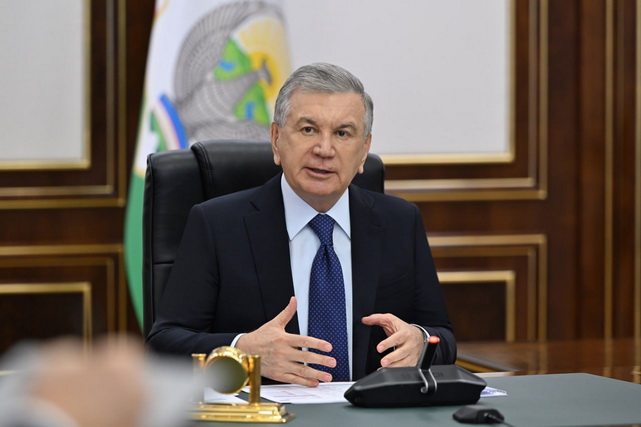
Uzbekistan outlines key tasks for transport sector development
Uzbekistan outlines key tasks for transport sector development
Tashkent, Uzbekistan (UzDaily.com) — On 11 January 2025, President of Uzbekistan Shavkat Mirziyoyev reviewed a presentation on measures to further develop Uzbekistan’s transport and logistics system.
Over the past seven years, thanks to government support for domestic carriers, the number of vehicles in their fleets has increased sevenfold, with the number of freight vehicles now reaching 26,000 units. The share of local carriers in international freight transportation has grown from 35% to 60%.
However, current geopolitical challenges have complicated logistics. Delivery times for goods heading west have doubled, while costs have risen by 50%. Additionally, some border crossings with Europe remain closed, and long queues have formed in other countries.
In response, President Mirziyoyev stressed the importance of steadily developing the transport and logistics system and diversifying foreign trade routes. Key actions include simplifying transit freight transportation through countries along alternative routes and negotiating mutual reductions or eliminations of border fees.
Currently, most freight forwarding services in Uzbekistan are provided by foreign companies. To support local freight forwarders, the government has decided to exempt them from value-added tax (VAT) on international transportation services. This measure aims to increase the share of local companies in this sector to 45-50%. The ultimate goal is to double the volume of international freight transportation and increase the export of transport services to US$3 billion.
Another critical task is to boost transit transportation through Uzbekistan. Improved conditions are expected to elevate the country’s position in the World Bank’s Logistics Performance Index, which, in turn, will attract more investments and strengthen trade and economic ties.
The responsible agencies have been instructed to implement an electronic queue system at border checkpoints, reduce border crossing times to 20 minutes, and introduce an online vehicle monitoring system.
The issue of non-linear taxi services was also discussed. Two years ago, individuals were temporarily allowed to work as self-employed taxi drivers, resulting in a sixfold increase in the number of taxi drivers, which now stands at 457,000. This regulation will now become permanent.
Additionally, a market for convenient information services to connect taxi drivers with passengers has emerged. Currently, 151 aggregator companies are operating, and their number continues to grow. The government has set the task of regulating aggregator activities by clearly defining their obligations to the state, drivers, and passengers.
These measures are expected to improve transport efficiency, enhance the country’s logistical capabilities, and create a more structured and transparent environment for both freight and passenger transportation services.
#Shavkat Mirziyoyev